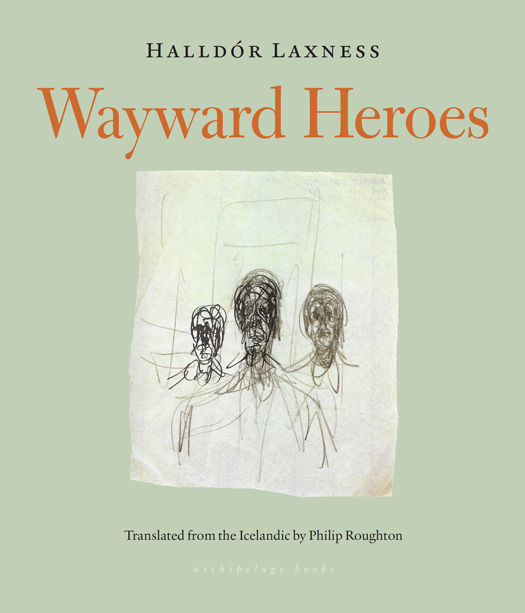
Wayward Heroes
کتاب های مرتبط
- اطلاعات
- نقد و بررسی
- دیدگاه کاربران
نقد و بررسی

Starred review from December 5, 2016
Two sworn brothers wage a quixotic battle against their time and place in Nobel-winner Laxness’s rich, impressive novel. The time is roughly 1,000 years ago, the place is Iceland, and the brothers are Porgeir Hávarsson, whose father is murdered in a neighborly spat, and Pormóður Bessason, a gifted young poet, or skald, bound to serve an older widow named Kolbrún. Raised on “tales of the prowess of champions of yore,” Porgeir intends to become a hero himself. Soon after he meets Pormóður, who only wants to write lyrical narrative poems in praise of such men, the two go “freeloading” throughout the district of Vestfirdir, “calling particularly... on better-off farmers holding feasts,” beating up Christian clerics, and avenging the death of Porgeir’s father. But this boisterous idyll must end; Kolbrún intends to exercise her hold on Pormóður, despite his love for a wealthy farmer’s daughter, while Porgeir joins a Viking band of mercenaries, going on campaigns in England and France. Drawing on historical events, including King Olaf’s reign in Norway and the burning of Chartres Cathedral, Laxness revises and renews the bloody sagas of Icelandic tradition, producing not just a spectacular historical novel but one of coal-dark humor and psychological depth. The old-fashioned violence Porgeir and Pormóður admire is rendered in all its futility and cruelty, and readers will find that these honorable but deluded heroes become objects of pity.

"Nothing but harm and misfortune result when killers and skalds come together." True enough, as Nobel Prize-winning author Laxness' long-forgotten 1952 novel elaborates.As Norse kings go, Olaf the Stout merits his name. The "sworn brothers" orgeir Havarsson and ormoour Bessason are another matter. The former had watched impassively, after all, as his father was slaughtered in epically gruesome fashion: "Joour Klngsson dismounted, and, like a true Norseman, hewed frantically at the man with his ax where he lay fallen, spattering blood and brains everywhere." Yet, having seen blood and gore firsthand, orgeir likes the possibilities for renown that follow, and so he sets out to carve out a hero's name for himself, shunning farm work--he objects to it by saying that since his mother never ordered him to feed the pigs, it was his privilege to "slay with a sword." A hero needs a bard, and there's where sworn brother ormoour comes in. Alas, the two are less than successful as a Quixote/Panza team; they're a little dim at times, a little luckless at others, and the people they meet--especially the women--are better grounded in the world as it is and see right through them. Laxness' novel follows the better-known Independent People by a couple of decades, and while it can be read with much pleasure without context, a couple of things from modern real life play into its medieval setting, one being Laxness' Catholic worldview and the other his mistrust of alliances of the kind that the Cold War was forcing on Iceland, as well as of politics generally; as a minor character notes, "We have had plenty of kings in Norway, but the only ones that proved of any use to us were those that we sacrificed for good harvests and peace." The result is a cynical, tongue-in-cheek reimagination of the Old Norse sagas on which the novel is firmly based, its heroes men with plenty of foibles. A welcome, major contribution to modern Nordic literature in translation and a pleasure to read. COPYRIGHT(1) Kirkus Reviews, ALL RIGHTS RESERVED.

























دیدگاه کاربران